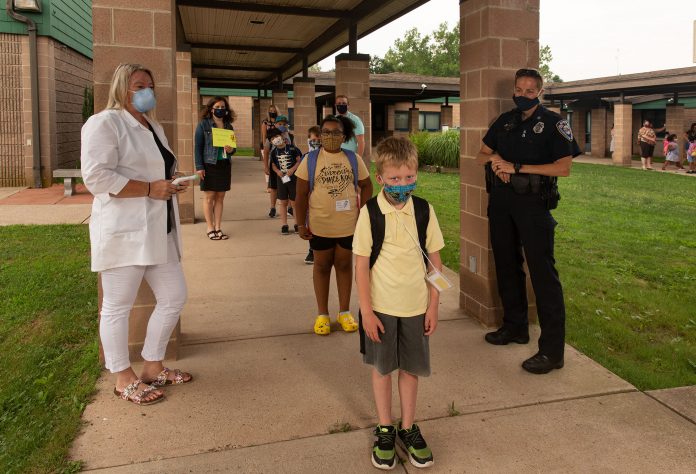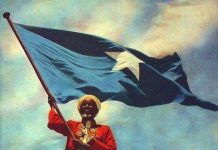Listen to the full episode here:
In this episode, we bring you the first of a 2-part series on how the pandemic is impacting the long struggle for a culturally affirming, socially just, and liberating educational system.
Segment 1: Education Before COVID
Indigenous Ways of Teaching & Learning
Dr. Leroy Little Bear, Professor Emeritus at the University of Lethbridge, and a founding member of Canada’s first Native American Studies Department
Public education during today’s pandemic reflects a battle that was already raging for more than 500 years. The fight over education didn’t start with Donald Trump or COVID-19. Competing values and visions have been clashing since European settlers first invaded the indigenous peoples of this continent and tried to impose their educational system. Indigenous world views and learning processes have always offered a stark contrast to colonial and corporatized education.
Developing The Factory Model of Education
Dr. Kevin Kumashiro, former Dean of the School of Education at the University of San Francisco, and an award-winning author and editor of ten books
The U.S. public education system was transformed over the centuries as the country expanded through settler colonialism, slavery, industrialization, and empire. But at every step, those who had wealth, power, and privilege had a very different educational experience from those who did not.
Freedom Schools
Dr. Fannie Rushing, Professor of History and Global Studies at Benedictine College. She was Field Secretary for SNCC, the Student Nonviolent Coordinating Committee, from 1962-66, when she helped create SNCC’s first residential freedom school.
In the 1950’s through 70’s, the struggles of oppressed peoples for civil rights, human rights, and self-determination challenged centuries of educational injustice. Some fought for equal access to the educational system, while others created new models, like freedom schools, that directly linked education to liberation and social justice.
The Corporate Education Agenda
Dr. Diane Ravitch, Research Professor of Education at New York University, was the Assistant Secretary of Education under George H.W. Bush, and oversaw federal testing for the Clinton administration. Today she is one of the most prominent critics of the corporate-driven education policies she helped to create.
Since the 1980’s, wealthy and powerful interests have promoted a neoliberal agenda for corporatized education that has continued into this century. They’ve gotten bipartisan support and massive funding from oligarchs and foundations like Gates, Walton and Broad. The major pillars of this corporate education agenda include standardization, privatization, and attacks on teachers unions.
Social Justice Education
Dr. Bill Ayers, retired Professor of Education at the University of Illinois at Chicago, and Dr. Rick Ayers, Associate Professor of Education at the University of San Francisco
In the first two decades of the 21st century, social justice educators, unions, and grassroots organizations fought the corporatizers by mobilizing students, parents and communities for educational equity and new models of social justice education. They are pushing back against the dominant education paradigms and asking, “Education for whom, and for what purposes?”
Learn more, get active:
- Check out resources and activities for social justice education at Teachers For Social Justice, https://t4sj.org, and The Education For Liberation Network, https://www.edliberation.org
- All interviews in this segment were excerpted from the 15-part series, “The Battle For Public Education in the 21st Century,” originally produced for KPFA’s Flashpoints program by Covid, Race and Democracy producer Ken Yale. You can listen to the full series, which is archived at Teachers For Social Justice, at https://t4sj.org/politics-and-media/t4sj-radio/the-battle-for-public-education-flashpoints/
Segment 2: Education In The Pandemic
What The Research Says About Online Education
Dr. Carol Batker, English Professor at the University of San Francisco, co-author of a research brief on the effectiveness and impact of online education
When we think about teaching and learning in the pandemic, the first thing that comes to mind for many people is online education. A team of scholars from the California Alliance of Researchers For Equity in Education recently published a research brief that indicated the move to online learning has exacerbated racial and class inequities, harmed learning, and fueled profiteering.
Students Tell Their Own Stories
Travis Baldwin, Gabriel Crommie, and June McNally, students at Berkeley High School, in Berkeley, California
These three student producers give us a window into life as a teenage student during the pandemic. They share deeply moving and insightful reflections from their own experiences and the stories of other Berkeley High School students.
Learn more, get active:
- Download the full research brief about online education by Dr. Carol Batker and her colleagues in the California Alliance of Researchers For Equity in Education, at https://cd6dbb00-7991-40bc-bfd8-e2328db3c72e.filesusr.com/ugd/1e0c79_df201119763449f18419425ace9d509e.pdf
- Listen to the full productions created by Berkeley High School student producers Travis Baldwin and Gabriel Crommie here:
- Listen to Berkeley High School student producer June McNally’s piece here:
Segment 3: The Future of Our Schools
Abolitionist Education
Dr. Bettina Love, Professor at the University of Georgia, co-founder of the Abolitionist Teaching Network, and award-winning author, teacher, and educational researcher.
Dr. Love connects the dots between the prison industrial complex and the educational system. The Abolitionist Teaching Network develops and supports educators to fight injustice within their schools and communities utilizing the intellectual work and direct action of Abolitionists in many forms.
Learn more, get active:
- Check out the resources and activities of the Abolitionist Teacher Network at https://abolitionistteachingnetwork.org
Artist Credits:
- Boogie Down Productions: “You Must Learn”
- George Carlin: “The Reason Education Sucks”
- Dead Prez: “They Schools”
- Quentin Lee: “Can’t Touch This” parody
- Anonymous music teacher: https://www.youtube.com/watch?v=Zy_y9yOrgxk
Production:
This program was co-produced by Polina Vasiliev and Ken Yale, and hosted by Ann Garrison, with contributions from Rick Ayers, Travis Baldwin, Gabriel Crommie, Phil Halpern, Marcos Maldonado, and June McNally. The executive producers of “Covid, Race and Democracy” are Akua Holt, Polina Vasiliev, and Steve Zeltzer.




